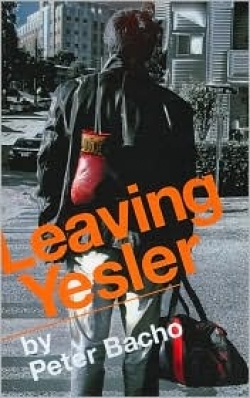Leaving Yesler
Leaving Yesler encounters seventeen year-old Bobby Vincente in the wake of his older brother’s military death. Faced with the challenge of caring for his aging father, this young man from urban Seattle’s housing projects is forced to take control of his life and identity as he traverses a period of life-altering change marked by new interests, new challenges, and ultimately, new life.
Author Peter Bacho, a two-time winner of the American Book Award, explores themes of belief/disbelief, arrival/departure, and love/violence, through which he achieves a portrait of embodied strength in his protagonist. Bobby is sensitive, faithful, and determined not to be defined or limited by anyone other than himself. This struggle takes him to the boxing ring, where his physicality is awakened, and to community college, where he studies in hopes of passing the GED and avoiding the draft. Out of Bobby’s sexual and emotional growth emerges a great capacity for forgiveness, a penchant for cooking, and a deep commitment to family.
Bacho accentuates Bobby’s stressful mental state by making use of a narrative style that is blunt and interrogative. He creates a stream of constant self-definition and re-definition that rides up along the emotional highs of love, success, and pride and down through the lows of rejection, loss, and shame, while also opening the story to a host of literal spirits. These ghosts, the majority of whom are Bobby’s deceased relatives or neighbors, coax and provoke him to learn more about himself and about the kind of person he wants to be. Paulie Vincente, protector and tormentor of his younger sibling in life, continues to influence his brother by appearing and speaking to him even at the most inopportune moments. Readers will get the sense that there is a mission here, and Bobby’s growth as a character owes a great deal to his flat-out acceptance of these apparitional lessons as a part of a larger reality.
Though the novel takes place during the Vietnam War, this tale of a mixed race, impoverished, and soon-to-be orphaned American rings true to a contemporary setting. A critique of organized Christianity also weaves through the book that, combined with Bacho’s technique of magical realism and the value placed on self-determination, presents a strong message of non-conformity. Leaving Yesler is accessible, contains fears and joys to which young people can relate, and offers a great deal to ponder. (March) Patty Comeau
Disclosure: This article is not an endorsement, but a review. The publisher of this book provided free copies of the book to have their book reviewed by a professional reviewer. No fee was paid by the publisher for this review. Foreword Reviews only recommends books that we love. Foreword Magazine, Inc. is disclosing this in accordance with the Federal Trade Commission’s 16 CFR, Part 255.

